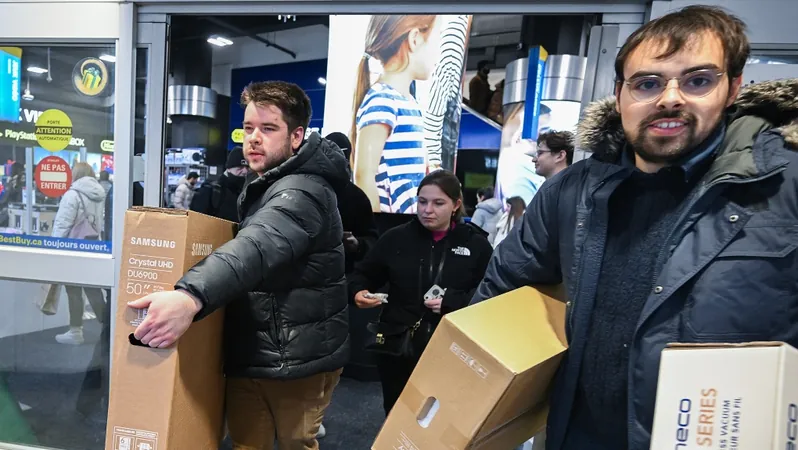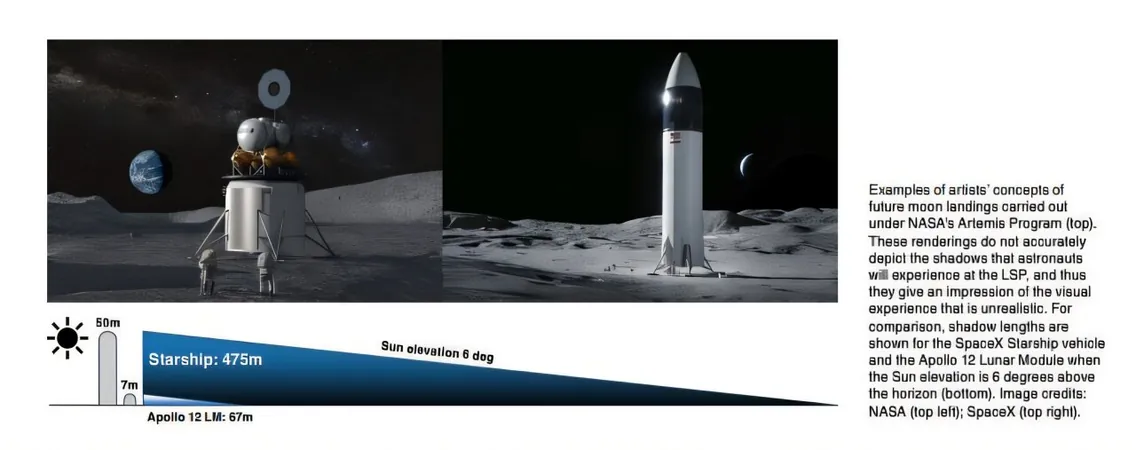
Google Cloud Unveils Trillium TPUs: A Game Changer in AI Performance and Efficiency!
2024-12-28
Author: Emma
Introduction
Google Cloud has just made waves in the tech world with the announcement of the general availability of its sixth-generation Tensor Processing Unit (TPU), aptly named Trillium. This cutting-edge AI accelerator is strategically designed to tackle the soaring demands of large-scale artificial intelligence workloads, boasting enhancements in performance, energy efficiency, and scalability that are bound to revolutionize the industry.
AI Hypercomputer Project
First unveiled in May, Trillium TPUs are pivotal to Google Cloud's ambitious AI Hypercomputer project. This innovative supercomputer architecture integrates performance-optimized hardware, open-source software, and leading machine learning frameworks, creating a cohesive system aimed at maximizing efficiency. It’s not just an upgrade; it’s a leap towards the future of AI processing.
Software Enhancements
The official rollout of Trillium TPUs comes with significant enhancements to the software layer of the AI Hypercomputer framework. The optimization of the XLA compiler— along with support for popular machine learning platforms such as JAX, PyTorch, and TensorFlow—promises improved price-performance ratios in both AI training and serving. Features like host-offloading with expansive host DRAM complement the High Bandwidth Memory (HBM), further boosting the efficiency of these advanced chips.
Performance Breakthroughs
Impressively, Trillium TPUs deliver training performance that's over four times superior and provide up to three times the inference throughput compared to their predecessors. Furthermore, with a remarkable 67% boost in energy efficiency, these processors not only deliver speed but also contribute to sustainability, a growing priority in technology today. The peak compute performance per chip is 4.7 times greater than the previous generation, clearly designed for the most computationally intensive tasks.
Real-World Applications
Additionally, Trillium TPUs played a critical role in training Google's Gemini 2.0 AI model, demonstrating their capability in real-world applications. In discussions on platforms like Hacker News, experts noted that Google’s TPUs have been in use for training purposes for over five years and have gradually caught up in key areas like sparsity in model training.
Competitive Landscape
The competitive landscape of AI computing remains dominated by Nvidia, which currently holds between 70% to 95% of the AI data center chip market. Despite this, Google's strategic choice not to sell TPUs directly—offering only access via its cloud services—suggests a forward-thinking approach that prioritizes long-term AI efficiency and value creation over short-term sales.
Conclusion
As one Reddit user aptly put it, Google’s strategy is akin to crafting furniture from timber—it creates immense added value by transforming raw capabilities into sophisticated AI solutions. This perspective highlights the potential of Trillium as a tool not just for computing, but for fundamentally reshaping how we leverage AI technologies for a more sustainable and productive future. The implications of these advancements, both for businesses and consumers, are simply staggering. Could this be the dawn of a new era in AI processing? Only time will tell!









 Brasil (PT)
Brasil (PT)
 Canada (EN)
Canada (EN)
 Chile (ES)
Chile (ES)
 España (ES)
España (ES)
 France (FR)
France (FR)
 Hong Kong (EN)
Hong Kong (EN)
 Italia (IT)
Italia (IT)
 日本 (JA)
日本 (JA)
 Magyarország (HU)
Magyarország (HU)
 Norge (NO)
Norge (NO)
 Polska (PL)
Polska (PL)
 Schweiz (DE)
Schweiz (DE)
 Singapore (EN)
Singapore (EN)
 Sverige (SV)
Sverige (SV)
 Suomi (FI)
Suomi (FI)
 Türkiye (TR)
Türkiye (TR)